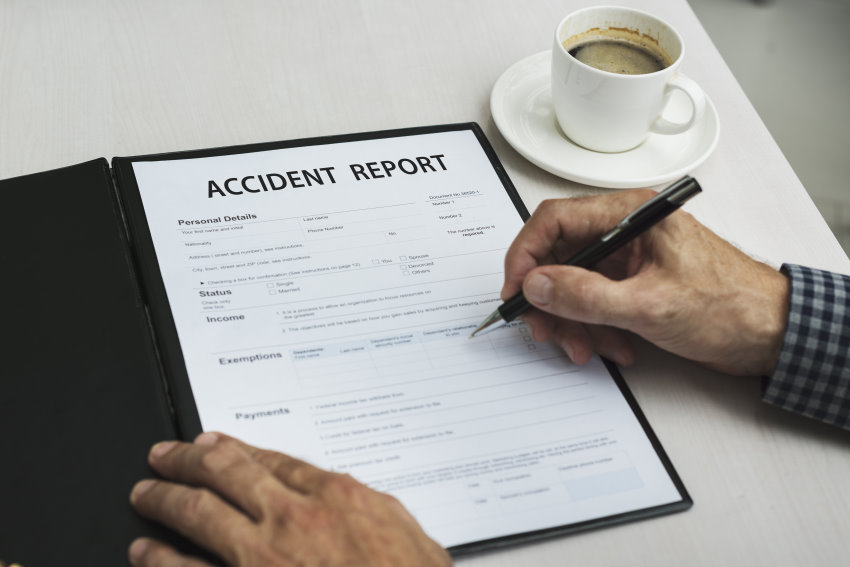Steps When You Receive a Personal Injury at Work
September 8, 2022 | Personal injury
As an employer, it is your responsibility to provide your employees with a safe work environment. Failure to do so can result in workplace injuries or illnesses. Injuries and illness at work is not only unprofitable for businesses but can also be a big liability to the company. This is because most states require employers to provide their employees with workers’ compensation insurance. This insurance provides a financial cushion to injured employees and protects employers from having to compensate employees out of pocket.
Personal injuries can still occur even in what is believed to be the safest work environment. When they do occur, it is important as an employer to act quickly and prevent losses wherever possible. The following are some steps you should take.
- Be prepared for possible workplace accidents and incidents
The first step to protecting your organization and its employees is being prepared for the possibility of injuries or illness in the workplace. It is important for an organization to have a strategy for responding to accidents quickly and minimize the effects.
A workplace response system could include:
- A response plan for various types of situations e.g. fire evacuation plans,
- Training employees on emergency and safety response. This ensures that there is someone available that knows what to do to contain the situation and prevent injuries from becoming worse
- Investing in safety equipment and emergency supplies
Being prepared for any situation will reduce the risk of injuries. However, should an accident occur, your organization will be in a good position to minimize the damage.
- Respond immediately
It is important to provide immediate response to injuries when the do occur. As an employer you should:
- Assess the situation and determine what caused the accident and how severe the injuries appear to be. Ensure that the area is secured or the situation is contained to protect other employees from injury.
- Assist the injured employee. If the injuries are minor e.g. cuts and bruises, they should be attended to by resident first-aiders. Emergency services should be contacted for more serious workplace injuries. However, wherever possible basic first aid ought to be applied to stabilize the injured employee.
- Gather evidence. It is important to establish exactly what happened and gather evidence to support this. As an employer you have the advantage. You can begin to investigate the incident right away. Begin asking witnesses for their accounts and record these accounts. Review evidence such as security camera recordings and keep any relevant evidence. Ensure that an incident report has been recorded. It is also important to request the employee to seek medical attention even when the injury seems minor. All injuries should be documented. Employees may claim they are ok only to suffer complications at a later date.
- Communicate and complete paperwork
It is important to provide your employee with the documentation they need to file a workers’ compensation claim. These may include the workers’ compensation claim form and the workplace incident report. Maintain open communication with your employee and all parties involved. This will help to speed up the claims process and ensure that your employee will receive the funds they need for their upkeep and treatment.
Be sure to inform your insurance company soon after the incident. It is important to let your insurance company know that there has been an accident. Letting the insurance company know as soon as possible enables them to begin the process of investigating the accident as soon as possible.
- Seek the services of a personal injury lawyer
Recovering workers’ compensation does not mean that your employee cannot file a lawsuit against you. Your employee may choose to file a lawsuit against you if they feel that you were responsible for their injuries.
It is important to keep the lines of communication open between you and your employee. This will help you determine whether they plan to file a personal injury claim against you or not. If they do plan to file a claim against you, it is important to seek the advice of a personal injury attorney as soon as possible. Your attorney will review the circumstances of the case and determine the best way to proceed with building a strong defense on your behalf.
In many instances, workers’ compensation claims and personal injury claims can be settled without the need for litigation. It is important to hire the right attorney to help protect your rights as an employer and negotiate with the injured party on your behalf. Channel all communication related to the claims through your attorney. You may otherwise be viewed as attempting to intimidate your employee.
Conclusion
It is important to provide your employees with a safe work environment. However, this doesn’t mean that accidents won’t happen. When they do happen it is important to act fast and protect your business. Use the tips above to ensure you do just that.

Steps When You Receive a Personal Injury at Work

